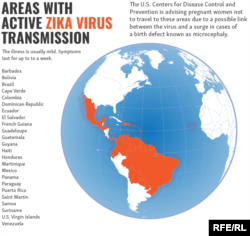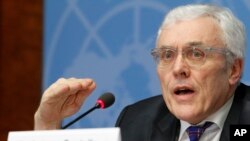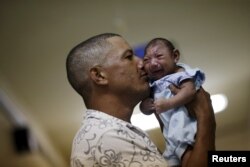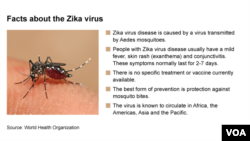The World Health Organization warns of a potential surge of microcephaly, a neurological disorder in babies with possible links to the Zika virus, to Africa, Asia and other areas of the world that lack the tools to tackle the disease.
WHO has declared the recent surge of microcephaly cases and other neurological disorders in Brazil a Public Health Emergency of International Concern because of its strong association with the Zika virus.
WHO reports that cases of microcephaly in newborn babies in Brazil have soared to nearly 4,200 between October and January — a 10-fold increase over previous years. The abnormal neurological condition has now spread to 25 countries in Latin America.
Risk of spreading
Although microcephaly is a relatively rare condition, WHO says it is worried that the disease could spread to other areas of the world where populations may not be immune to the Zika virus.
WHO Director of Maternal Health Anthony Costello says the mosquito that carries the Zika virus is present throughout Africa, in parts of southern Europe and many parts of Asia, particularly southeast Asia.
He says microcephaly is not a life-threatening illness like Ebola. But, he notes complications that result from having a child with an abnormally small brain can have a potentially devastating impact on families.
Lessons from Ebola crisis
Dr. Costello says the response teams will use all the lessons learned from the Ebola crisis. WHO has been heavily criticized for responding too slowly to the Ebola epidemic in West Africa.
By the time WHO declared Ebola a global public health emergency, the virus was out of control and had killed thousands of its victims.
The agency’s swift response to the explosive Zika virus outbreak is an attempt to not be caught short again.








